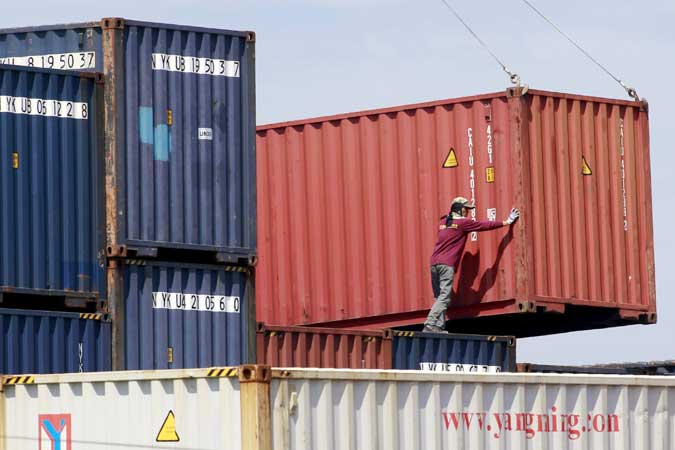Exporters want BIR to repeal new VAT rule

By Jenina P. Ibañez, Reporter
EXPORTERS and foreign chambers are calling for the repeal of the Bureau of Internal Revenue’s (BIR) tax refund scheme for raw materials shipped outside the country, which they said would cost Philippine jobs.
Industry leaders said Revenue Regulations (RR) No. 9-2021, which imposed a 12% value-added tax (VAT) on previously exempt raw materials and packaging supplies sold by local manufacturers to exporters, would weaken investor interest and cause multinational transfer to foreign suppliers.
VAT will also be imposed on outsourced services such as processing, manufacturing or repacking of goods to be exported.
Electronics exporters worry that the rule would hamper investor interest.
“(The VAT) would only be passed on to the export manufacturing companies. This will severely lower the ease of doing business and discourage investors,” Semiconductor and Electronics Industries in the Philippines, Inc. (SEIPI) President Danilo C. Lachica said in a press conference on Tuesday.
Multinationals in the Philippines would prefer to import parts from suppliers outside of the country instead of paying the costs associated with local suppliers, he said.
The sector’s revenues, as well as up to 50,000 employees, could be at risk, he said.
“Companies are going to move these orders outside, so instead of having 12% on the existing sales and — I’m exaggerating — you can likely have a situation where you have 12% on zero sales because they’re all coming from imported materials. So that kind of defeats the purpose.”
Wearables exporters, which have “razor thin margins,” make money based on the productivity of local production and services, Confederation of Wearable Exporters of the Philippines Executive Director Marites Jocson-Agoncillo said at the same event.
“The imposition of 12% VAT on locally sourced raw materials as well as on the local services such as our add-on capability to produce middle high-end products such as washing, embroidery of things that we put on the apparel — this directly cuts the profit center of the sector,” she said.
“This will drive exporters to import materials… We’ll be importing our threads, our cartons, our buttons. And (this) can marginalize the existence of the local support sectors such as the suppliers of the manufacturers of thread, button, zippers, and cartons.”
The 90-day VAT refund scheme, she added, “severely injures the companies’ cash flow.”
Melquiades L. Hernandez III, a member of the Pilipino Banana Growers and Exporters Association, also questioned the legal basis of the BIR regulation.
He said that there is a conflict between the Corporate Recovery and Tax Incentives for Enterprises (CREATE) law and the regulation, which BIR said was authorized by the Tax Reform for Acceleration and Inclusion (TRAIN) law. CREATE was passed later than TRAIN.
“CREATE law only limits but did not altogether remove the exemption or zero-rating of export-oriented registered business enterprises,” he said. According to CREATE, these businesses should still be entitled to VAT zero-rating on local goods and services purchases that are exclusively used in the registered activity, he added.
The export groups have sent letters to the BIR. Businesses could either take judicial action or take their concerns to the Senate.
“Being multinational companies, it’s always difficult to get sign offs, to actually be in a litigious state, but nevertheless I think compared to the previous issues that have come up, I think the multinational companies are more ready, willing, and able to take this up to the next level precisely because of the impact it will create… to the jobs that we have fought long and hard to preserve,” Concentrix APAC Regional General Counsel Michael Montero said.
Wearables exporters will take a different approach and reach out to the Senate instead.
Ms. Agoncillo said it would be difficult for her sector to take the same judicial path because the sector’s investors, which operate in various countries, see small margins in the Philippines and could instead decide to exit or reduce operations here.
“We’re really fighting for the existence of the industry,” she said.



